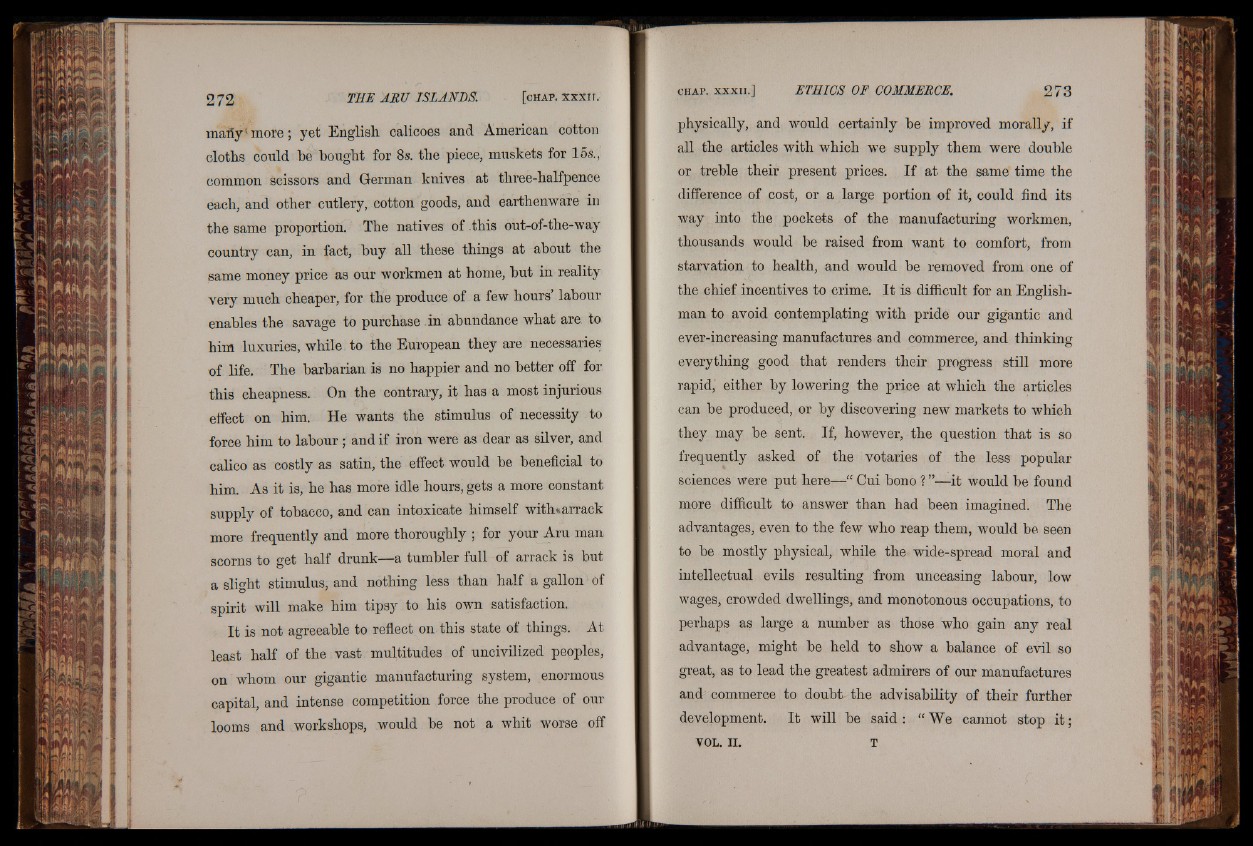
mafiy1 more; yet English calicoes and American cotton
cloths could be bought for 8 s. the piece, muskets for 15s.,
common scissors and German knives at three-halfpence
each, and other cutlery, cotton goods, and earthenware in
the same proportion. The natives of this out-of-the-way
country can, in fact, buy all these things at about the
same money price as our workmen at home, but in reality
very much cheaper, for the produce of a few hours labour
enables the savage to purchase in abundance what are to
fiirn luxuries, while to the European they are necessaries
of life. The barbarian is no happier and no better off for
this cheapness. On the contrary, it has a most injurious
effect on him. He wants the stimulus of necessity to
force him to labour; and if iron were as dear as silver, and
calico as costly as satin, the effect would be beneficial to
him As it is, he has more idle hours, gets a more constant
supply of tobacco, and can intoxicate himself with «arrack
more frequently and more thoroughly ; for your Aru man
scorns to get half drunk—a tumbler full of arrack is but
a slight stimulus, and nothing less than half a gallon1 of
spirit will make him tipsy to his own satisfaction.
It is not agreeable to reflect on this state of things. At
least half of the vast multitudes of uncivilized peoples,
on whom our gigantic manufacturing system, enormous
capital, and intense competition force the produce of our
looms and workshops, would be not a whit worse off
physically, and would certainly be improved morally, if
all the articles with which we supply them were double
or treble their present prices. If at the same time the
difference of cost, or a large portion of it, could find its
way into the pockets of the manufacturing workmen,
thousands would be raised from want to comfort, from
starvation to health, and would be removed from one of
the chief incentives to crime. It is difficult for an Englishman
to avoid contemplating with pride our gigantic and
ever-increasing manufactures and commerce, and thinking
everything good that renders their progress still more
rapid, either by lowering the price at which the articles
can be produced, or by discovering new markets to which
they may be sent. If, however, the question that is so
frequently asked of the votaries of the less popular
sciences were put here—“ Cui bono ? it would be found
more difficult to answer than had been imagined. The
advantages, even to the few who reap them, would be seen
to be mostly physical, while the wide-spread moral and
intellectual evils resulting from unceasing labour, low
wages, crowded dwellings, and monotonous occupations, to
perhaps as large a number as those who gain any real
advantage, might be held to show a balance of evil so
great, as to lead the greatest admirers of our manufactures
and commerce to doubt the advisability of their further
development. It will be said : “ We cannot stop i t ;
VOL. II. T